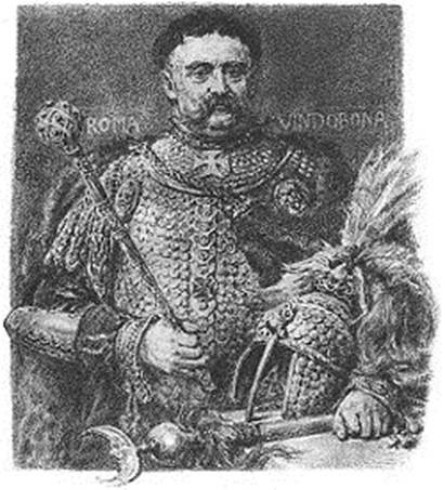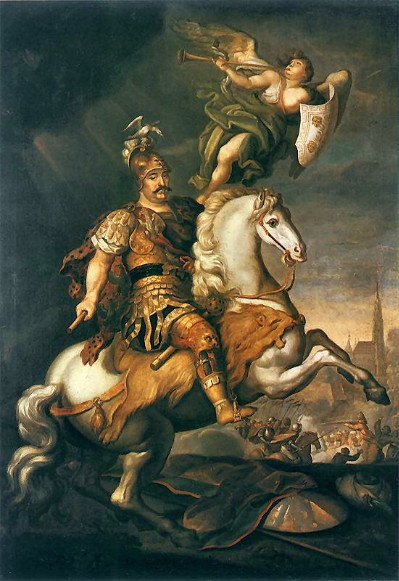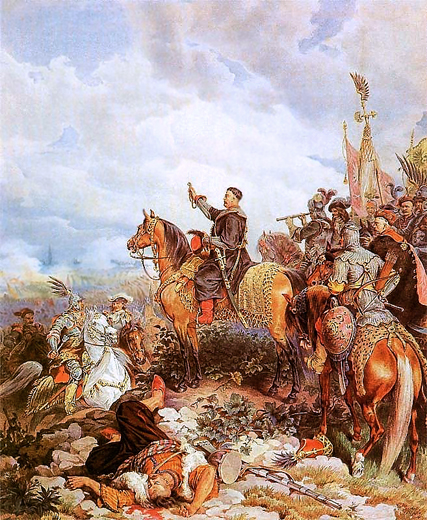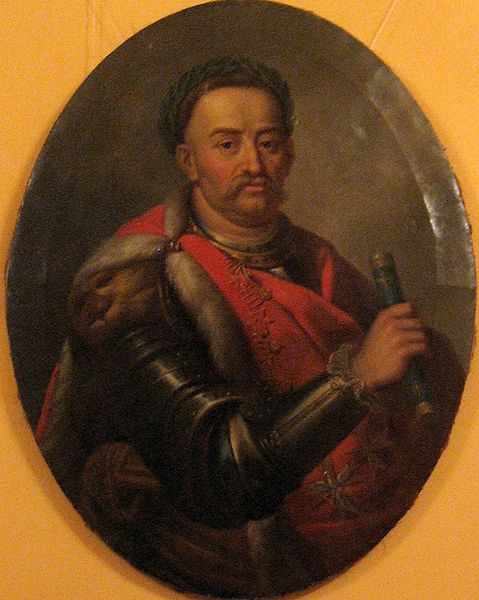Jan III Sobieski
Jan III Sobieski, b 17 August 1629 in Olesko, Galicia, d 17 June 1696 in Wilanów, Poland. King of Poland and grand duke of Lithuania in 1674–96. The son of Jakub, the castellan of Cracow, he fought in the Cossack-Polish War, at the Battle of Zboriv (1649) and the Battle of Berestechko (1651), and was severely wounded. He participated in Poland's wars with the Cossacks, Tatars, Muscovy, Sweden, and Turkey, becoming the field hetman in 1666 and grand hetman in 1668. Opposed to the reign of Michał Korybut Wiśniowiecki, he was elected king upon the latter's death. During his reign he concentrated on waging war against Turkey, becoming famous for his defense of Lviv in 1675. By the Treaty of Zhuravno (1676) he recovered large parts of Ukraine from Turkey, but without Podilia. He led the army of Poland, in which there were many Ukrainian Cossacks, that forced the Turks to lift the siege of Vienna in 1683. In 1684 he allowed the Cossacks to resettle the devasted lands in Right-Bank Ukraine. He continued his war with Turkey until 1691, attempting unsuccessfully to occupy Moldavia and Wallachia and thus to secure Poland's access to the Black Sea. In 1686 he concluded the Eternal Peace of 1686 with Muscovy. Jan III tried to introduce a hereditary, absolute monarchy and other reforms but failed because of opposition from the senate, diet, and allies. Sobieski was a generous patron of the arts, including the Ukrainian art, and his patronage played a crucial role in the establishment and flourishing of the Zhovkva School of Artists in his residence town of Zhovkva.
[This article was updated in 2016.]



